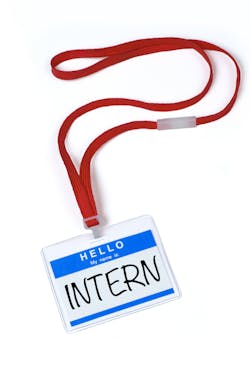Hiring high school and college students as interns sounds like a great idea in order to save your company money (and to help the student get real life work experience), right? Well, it could end up costing you more money if the process is not handled correctly.
Under the Fair Labor Standards Act, anyone who performs work for you is entitled to get paid. However, exceptions were initially made to not pay true volunteers of non-profits. Then, in 1947, the U.S. Supreme Court carved out an exception applicable to for-profit businesses, holding that “trainees” were not employees entitled to compensation. The U.S. Department of Labor then published http://www.dol.gov/whd/regs/compliance/whdfs71.pdf which states an unpaid internship at a for-profit business is legally permissible, but only if:
- It is similar to training given in an educational environment;
- It primarily benefits the intern, not the organization;
- The intern is closely supervised by existing staff and does not displace regular employees;
- The employer derives no immediate advantage from the intern’s activities; and on occasion its operations may actually be impeded;
- The intern is not necessarily entitled to a job after the internship; and
- The employer and the intern understand that the intern is not entitled to wages.
Whether these factors are a rigid checklist or simply a guiding framework, this depends on where you are located as each court interprets this checklist differently. The best practice is for-profit businesses to consider this a checklist to follow and if you fall short on any factor above, the internship should be paid. The issue with not following the checklist and not paying an intern is the intern will then be considered an employee. Employees must be paid. Employees must be paid minimum wage. Employees (non-exempt) must be paid overtime. Consequently, if you have an intern who is truly an employee (e.g., the intern is really working as an assistant to the warehouse stock person or a route driver’s helper) and the intern goes to the Department of Labor or files a lawsuit, you may be on the hook not only to back-date and pay the intern minimum wages, but there are penalties, fines, interest and possibly attorneys’ fees that go along with improperly classifying the intern.
Practice tips for companies that seek to hire unpaid interns:
- Make clear before the intern starts that the position is unpaid and is not likely to lead to a paid position with your company (recommendation is to have this in writing signed by both parties).
- Coordinate with the student’s educational institution to provide credit for the internship (whenever possible).
- Never use an unpaid intern to fill a paid position (even if it’s just temporarily).
- Remember that internships are designed to provide educationally rich learning experiences, not a source of free labor – remember, “There’s no such thing as a free lunch.” –Milton Friedman (1912-2006)
- Recognize that while having an internship program may benefit the organization overall, the program itself will likely decrease efficiency and could negatively impact the organization’s bottom line since it’s supposed to be a learning and training experience for the intern.
- Follow all normal hiring protocol if you do consider a former intern for a paid position.
Notes about the author: Heather A. Bailey, Esq., a partner with SmithAmundsen LLC and NAMA Knowledge Source Partner for over a decade, focuses her practice on labor and employment law issues for employers. Heather may be contacted directly at: 312.894.3266, Email: [email protected]. Join her firm’s free labor and employment blog at www.laborandemploymentlawupdate.com.
This article first appeared in our Vending Quarterly management-focused newsletter. To sign up and receive the newsletter, click here.
About the Author

Heather Bailey
Heather A. Bailey, Esq., a partner with SmithAmundsen LLC and a National Automatic Merchandising Association Knowledge Source Partner for over a decade, focuses her practice on labor and employment law issues for employers. Heather may be contacted directly at: 150 N. Michigan Avenue, Suite 3300, Chicago, IL 60601; Direct Dial: 312.894.3266, Email: [email protected]. Join her firm’s FREE labor and employment blog at www.laborandemploymentlawupdate.com for the latest updates on issues affecting your business.
